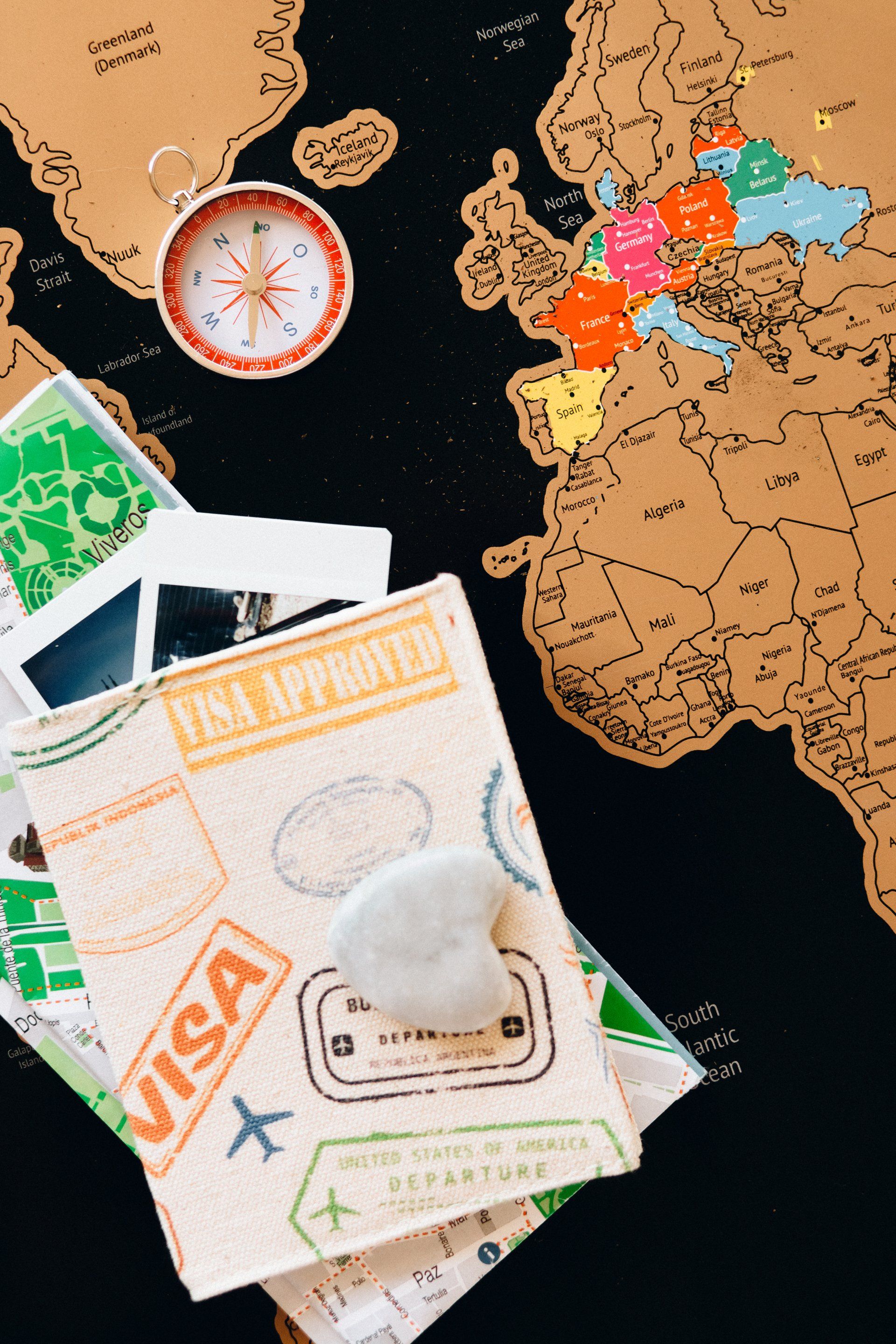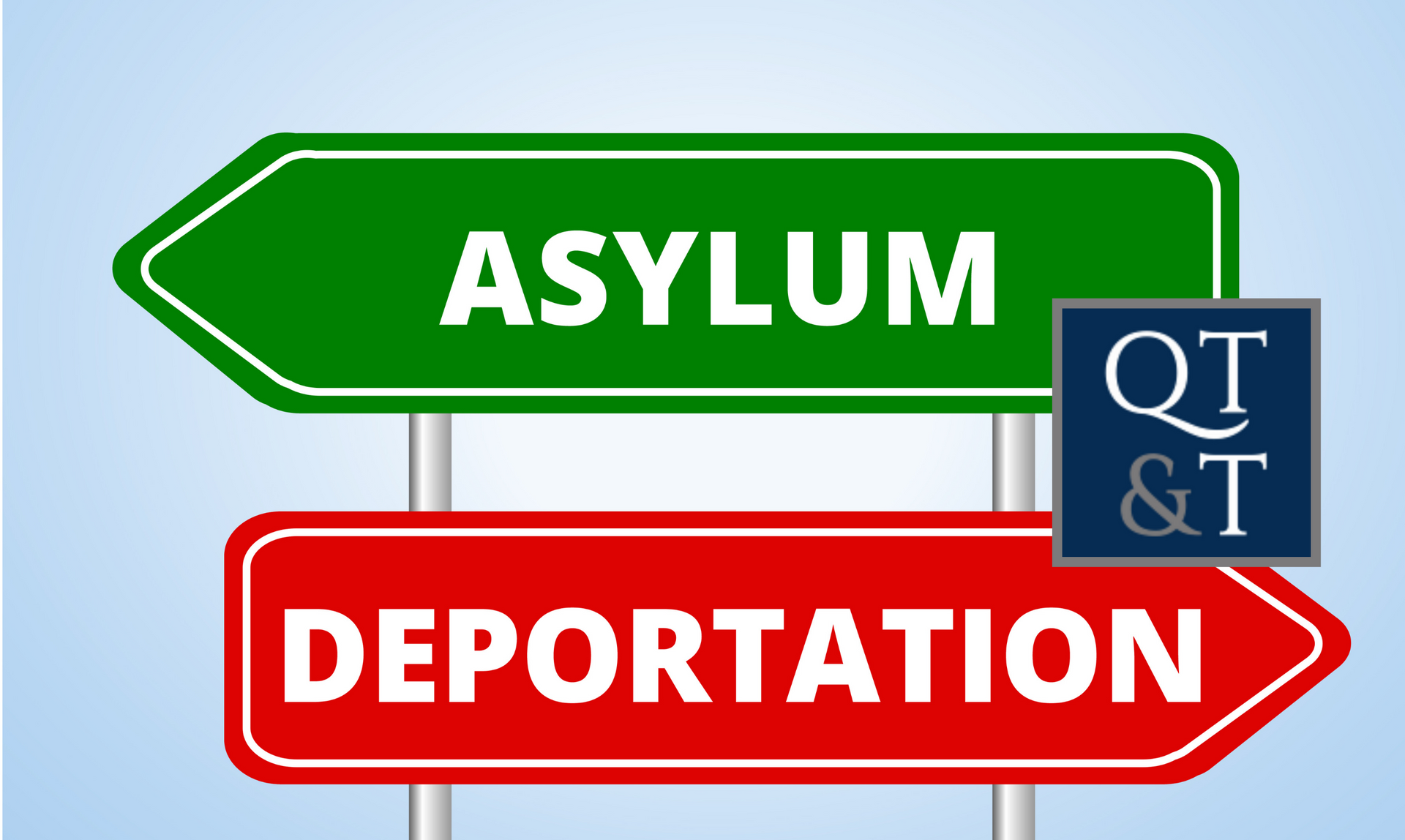🗣️ Fluent in English, Spanish & Portuguese 🌍
Understanding the EB-2 NIW Visa Process: A Guide for Prospective Applicants
What is an EB-2 NIW Visa? The EB-2 visa category is particularly aimed at foreign nationals who are either professionals holding advanced degrees or individuals with exceptional ability in the sciences, arts, or business. The National Interest Waiver (NIW) under this visa category allows eligible individuals to bypass the usual requirement of a labor certification if they can demonstrate that their contributions will significantly benefit the United States.

Eligibility Criteria:
The EB-2 NIW visa has two primary eligibility pathways:
1. Advanced Degree:
- The applicant must hold an advanced degree (a master’s degree or higher) or its foreign equivalent.
- Alternatively, an applicant with a bachelor’s degree followed by at least five years of progressive professional experience in the field also qualifies under this category. This pathway is suitable for individuals whose education and extensive experience equip them to contribute significantly in their fields.
2. Exceptional Ability:
- This category is for individuals who can demonstrate a degree of expertise significantly above that ordinarily encountered in the sciences, arts, or business.
- Applicants must meet at least three of the following criteria to qualify under exceptional ability.
- Official academic record showing that you have a degree, diploma, certificate, or similar award from a college, university, school, or other institution of learning relating to your area of exceptional ability.
- Letters documenting at least 10 years of full-time experience.
- A license to practice your profession or certification for your profession or occupation.
- Evidence that you have commanded a salary or other remuneration for services that demonstrates your exceptional ability.
- Membership in professional associations.
- Recognition for your achievements and significant contributions to your industry or field by your peers, government entities, professional or business organizations.
Application Process:
1. Petition and Evidence Submission: File Form I-140, Immigrant Petition for Alien Workers, demonstrating that you meet the requirements for either an advanced degree professional or an individual with exceptional ability. You must also provide substantial evidence showing that waiving the job offer and thus the labor certification will significantly benefit the United States.
2. National Interest Waiver: Clearly prove that your employment in the United States would greatly benefit the nation by demonstrating your work's national importance, your capability to advance the proposed endeavor, and that it would be beneficial to the United States to waive the requirements of a job offer and labor certification.
3. Processing and Decision: USCIS will review your petition, which can vary in processing time based on their workload. An RFE may be issued if more information is needed.
4. Visa Issuance and Adjustment of Status: Following approval, if you are already in the U.S., you may file Form I-485 to adjust your status to a permanent resident. Otherwise, consular processing will be necessary abroad.
Key Considerations:
Consulting with an immigration attorney is highly advisable to effectively navigate the complexities of your application. Us at Quattrochi, Torres and Taormina are here to help, call is for a free consultation.

By Jonathan Amador
•
22 Apr, 2024
Discover the essential steps to immigrate to the US as a doctor with our comprehensive guide for international physicians. From educational requirements to visa options, learn how to navigate the complex process and establish your medical career in the United States.

By Jonathan Amador
•
18 Mar, 2024
Dive into the legal complexities of Miguel-Peña, et al. v. Garland (2024), where Wendy Carolina Miguel-Peña and her daughter challenge their removal proceedings and asylum application denial. Unravel the arguments, court analysis, and implications, shedding light on procedural requirements, asylum criteria, and the intricate dynamics of immigration law in the United States.

By Jonathan Amador
•
18 Mar, 2024
Explore the legal intricacies of Edwards v. Attorney General (2024), where Karastan L. Edwards challenges the classification of his conviction as an aggravated felony impacting his immigration status. Delve into the arguments, court analysis, and implications of this pivotal case, shedding light on the complex interplay between state court modifications and federal immigration law.

By Jonathan Amador
•
22 Feb, 2024
The E-2 Treaty Investor Visa offers a unique opportunity for individuals from treaty countries to invest in and operate businesses within the United States. However, complexities arise when the approved passport of an E-2 visa applicant or their dependents belongs to a country that does not have a treaty agreement with the U.S. This situation presents a unique set of challenges and considerations for potential investors and their families.

By Jonathan Amador
•
22 Feb, 2024
The H-1B Visa: A Gateway for Global Talent in Specialty Occupations The H-1B visa serves as a crucial bridge for highly skilled professionals from across the globe, offering a unique opportunity to contribute their expertise to the U.S. workforce. This visa category encompasses a wide range of specialty occupations, from accountants and attorneys to software engineers and medical workers, and even extends to distinguished fashion models, showcasing the diversity of talent it attracts. Understanding the H-1B Visa The H-1B visa is designed for temporary nonimmigrant workers in fields that demand a high level of specialized knowledge, typically requiring at least a bachelor's degree or its foreign equivalent. Unique among work visas, it also accommodates distinguished fashion models, highlighting its broad scope. The Distinction of H-1B Status Holding an H-1B visa status is distinct from merely having the visa stamp in one's passport. The status confers the right to work in the U.S. in a specialized role, initially granted for up to three years and renewable in increments up to a total maximum of six years. For those seeking to extend their journey beyond this tenure, transitioning to an employment-based green card is a viable path. Meeting the H-1B Requirements To qualify for an H-1B visa, candidates must secure a job offer from a U.S. employer in a specialty occupation that matches their educational and professional background. The role must offer prevailing wages and meet the educational criteria, typically a U.S. bachelor's degree or equivalent. Selection in the H-1B visa lottery is a critical step for those subject to the annual cap, marking the beginning of their application journey. Sponsorship: The Employer's Role H1B sponsorship is a pivotal process that allows U.S. companies to bring foreign professionals to the United States for temporary work in specialty occupations. The responsibility of filing the H-1B visa petition with USCIS lies with the U.S. employer. Successful approval of the petition ushers in the employer's duty to ensure the H-1B employee is accorded the same job benefits as their counterparts, including bonuses, health benefits, and other employment perks, thereby maintaining equity within the workplace. The Application Process: A Step-by-Step Overview The application process for an H-1B visa involves meticulous preparation, starting with the employer filing a Labor Condition Application (LCA) with the Department of Labor (DOL) for certification. Following certification, the employer assembles an H-1B petition, including Form I-129, the certified LCA, and a comprehensive package of supporting documents, such as proof of the candidate's qualifications and details of the job offer. For candidates outside the U.S. or those changing status, obtaining an H-1B visa stamp through consular processing is the next step. This involves completing Form DS-160, paying the visa application fee, and attending an interview at a U.S. consulate or embassy, armed with the necessary documentation, including the I-797 H-1B approval notice and a valid passport. Extension and Renewal: Ensuring Continuity For H-1B workers seeking to extend their stay beyond the initial authorization, the renewal process mirrors the initial application. Employers must initiate this process well in advance of the visa's expiration, filing a new I-129 petition with USCIS to extend the candidate's H-1B status, thereby ensuring uninterrupted employment in their specialty occupation. As the landscape of work continues to evolve, the H-1B visa remains a pivotal pathway for professionals seeking to leverage their specialized skills on the global stage, embodying the spirit of collaboration and growth that defines the modern workforce.
CONTACT US
950 S. Winter Park Dr., Suite 207
Casselberry, FL 32707
PRACTICE AREAS






